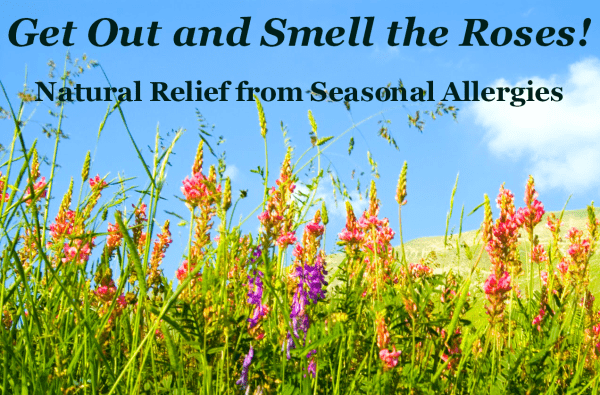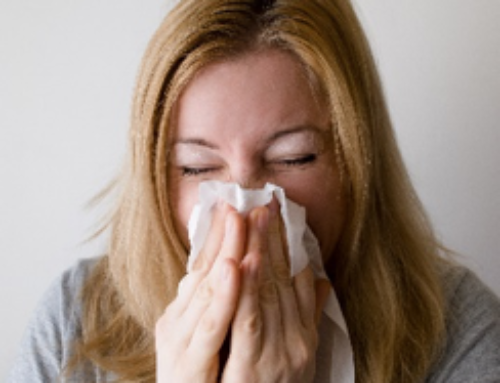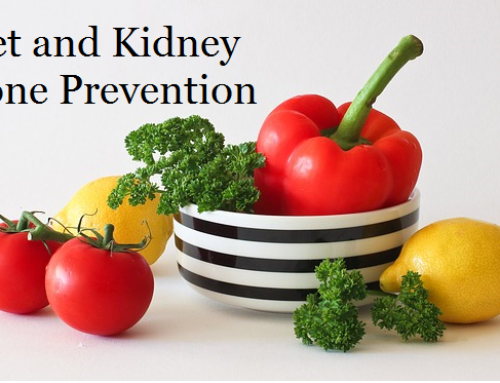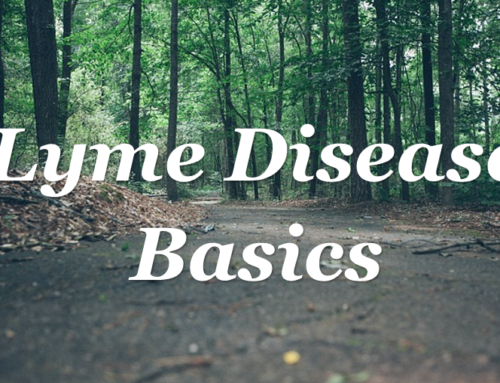It’s that time of year again! While the blooming flowers and new greenery certainly are beautiful, the pollen has many of us walking around feeling like our heads may explode. Although allergies are stressors that your body deals with all year round, the extra seasonal burden make us all painfully aware of the effect allergens can have on our health.
Over the counter allergy medications such as Claritin, Allegra and Zyrtec may be helpful to some for seasonal allergies, but even the “non-drowsy” formulas can still cause fatigue and fogginess. Taking antihistimines ONLY at night may even still leave you feeling lethargic the next day.
If side effects from allergy medications are getting in the way of feeling normal again, there are other, natural options to gain relief from seasonal allergies.
1. Reduce exposure to allergens:
As we mentioned, reducing exposure to allergens is one of the best ways to improve your allergy symptoms. Most of us don’t want to have to hole ourselves up in an iron lung, so there are certain steps to take as environmental controls to reduce the amount of allergens around you.
- Keep windows closed to prevent pollen from entering the house.
- Shower and wash your hair before bed to remove allergens that you gathered throughout the day
- Remove your daytime clothing in a room other than your bedroom, and put them directly into the hamper in a room other than your bedroom
- Use a powerful room air cleaner such as a High Efficiency Particulate Air (HEPA). One powerful unit can easily reduce airborne allergens by 90%.
2. Sinus Rinse:
A Neti Pot or a NeilMed Sinus Rinse filled with a sterile saline solution flushes out the sinuses of allergens and irritations. Often, Dr. Costa recommends following this practice with a nasal spray, but contact us before going forward with a nasal spray.
To use, either use a pre-made saline rinse or make your own by dissolving 1 teaspoon of himalayan or sea salt in a quart of boiled distilled water. Cool completely and put in the Neti Pot or sinus rinse bottle. Pour through one nostril and let it drain out the other.
3. Foods to avoid:
Steer clear of alcohol (red and white wine seem to be the worst offenders) and other histamine containing foods. Foods high in histamine are processed meats, aged cheeses (such as Camembert, brie, Gruyere, cheddar, Roquefort, Parmesan and blue cheese), Fermented vegetables (especially those containing vinegar such as sauerkraut, pickles, olives, pickled beets and relishes), fermented milk products such as buttermilk, sour cream and yogurt, soured bread and foods made with a lot of yeast.
Also, if you know the source of your particular allergy, you can further pinpoint foods that tend to trigger what’s called “oral allergy syndrome,” a reaction to allergen-related foods that affects primarily the lips and mouth. Check out the Children’s Hospital of Philadelphia information on cross-reactive foods for those with seasonal allergies.
4. Foods to eat:
Eating an anti-inflammatory diet of nutrient dense plant based foods, healthy fats, adequate protein intake and limited refined carbohydrates and sugar can improve allergy symptoms.
Unprocessed, wild, local honey has anecdotally helped to alleviate seasonal allergy symptoms for people as well.
Tea (especially green and white tea) offers a big flavonoid boost that reduces inflammation and supports general immune function.
Apple Cider Vinegar (unfiltered with the mother- this is important) has also been known to reduce allergy symptoms. Use it in cooking or in place of balsamic vinegar in your next vinaigrette.
5. Supplements that help:
Please note, that as with any supplement regimen, please contact your doctor or speak with our office before taking any over the counter medication.
Quercetin: Quercetin is a natural bioflavonoid that is said to help stabilize mast cells to keep them from releasing histamine. It is also a potent antioxidant that is said to help reduce inflammation. It is best used as a long term remedy and many people start taking it about 4-6 weeks before allergy season to help prevent allergy symptoms. Though Quercetin is naturally found in foods like citrus, onions, and broccoli, it is very difficult to get the amount needed to relive allergies from food alone. A supplemental dose can be helpful for preventing allergies or helping acute symptoms. Contact us or visit our supplement store for more information about our natural Quercetin containing allergy supplement.
Probiotics: New research links the presence of beneficial bacteria in the gut with reduced incidence of allergies. Evidence is even emerging that a mother’s gut bacteria during pregnancy and nursing can impact a child’s likelihood of getting allergies throughout life. While we can’t do much about our mothers’ diets while they were pregnant, balancing gut bacteria now and consuming enough beneficial bacteria can have a positive effect on allergies now. Taking a daily high potency probiotic will promote the good gut health that is so important to proper immune function.
For more information about how Enhanced Medical Care may be able to help you with your seasonal allergies, or to learn more about our practice, please contact us! We look forward to hearing from you!
To your health!







Leave A Comment